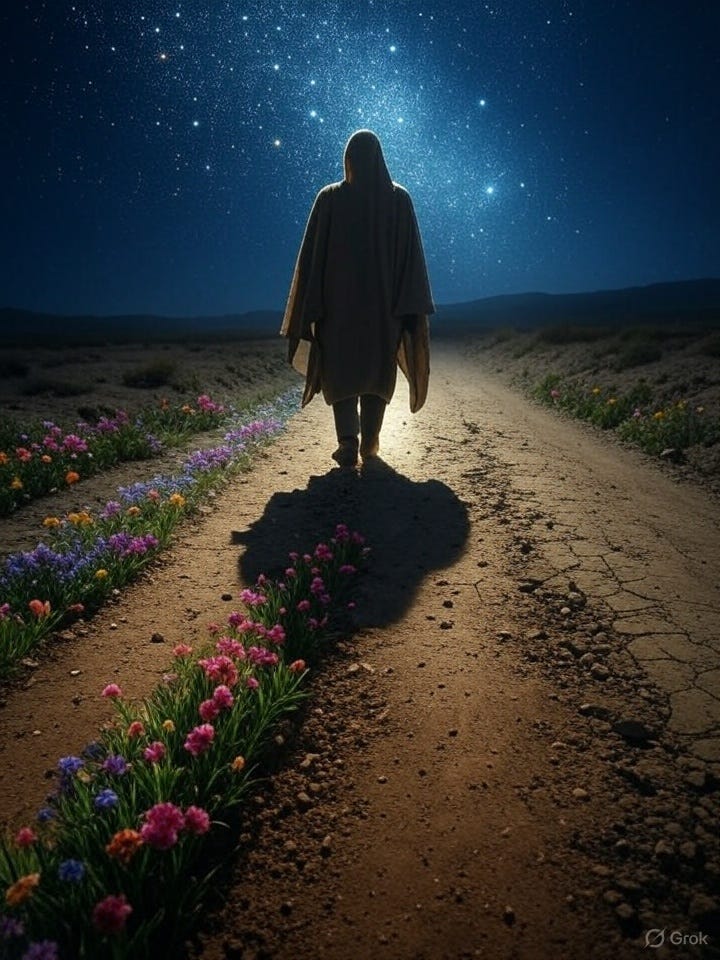God is dead. The soul is dead, but meaning has resurrected!
143 years after Nietzsche killed God, science buried His soul. It is up to us to resurrect meaning to continue to call ourselves Humans, not Organic AI robots.
God is dead. The soul is dead, but meaning has resurrected!
143 years after Nietzsche killed God, science buried His soul. It is up to us to resurrect meaning to continue to call ourselves Humans, not Organic AI robots.
1882: Nietzsche and the Death of God
1882, Nietzsche, in The Gay Science, pronounced the famous sentence: God is dead!
Well, for the fanatics of the world, the politicians who look for fuel for their demagogy, for the charlatans, the power-trip addicts, the self-declared gurus, etc etc… God is well alive and possibly will continue to live with authority and rules and the frown of his sacred brows, macho rules, homophobic incantations and all the paraphernalia of ineptitudes that religions call God willing. Or rather our interpretation, flawed and biased by the taste of the day, the priest’s taste of course.
But for most normal, rational people of good faith, well… God is really dead. We don’t go to church anymore, or the temple or whatever congregation. We don’t follow religious holidays. Everything is a hypocritical ersatz of the sacredness of the past.
The Search for Sacredness
Then where can we, as ordinary people, find our sacredness, our thirst for meaning that transcends the marketplace, the high school diploma, or even the married-with-kids status?
We want more, something absolute that can calm our longing for something that answers our question: “What is life?” with a response like “infinite” and not the cold, accounting-like “that’s it.”
We want life to be a sacred experience, an indefinite realm where we can dream and see poetry and beauty.
Our last corner of beauty and calm, the last stronghold of our meaning, we call it mysticism: looking for a kind of living sanctity, awareness and illumination. That was our last refuge against materialism, atheism, the mundane and the profane.
The Dollar Store no pasaran!
2025: Science Kills the Soul
But here comes science. From our first cursed day on the path of being human, from the first rotten apple we ingested… Actually, we didn’t eat only knowledge. We ate knowledge without the knowledge of its sacred essence.
Step by step we advanced mathematics. We dissected cadavers. We dissected brains, alive or dead. We dissected our psyche. We got all the responses.
And now science seems to have found the root of consciousness. This experience they call “hallucination,” a mere mechanical result. Nothing miraculous, nothing mysterious. Mystery is gone; demystification means death.
It’s like a car: consciousness has an engine, wheels, and uses some kind of special fuel. But at the end, it’s just an object, a material response to the material world.
Yet perhaps we underestimate the human need for mystery itself. Complete explanation kills the awe and curiosity that motivate human exploration and growth. Peak experiences, love, and spiritual fulfillment depend on encountering something beyond our full comprehension. If we are fully explicable machines, we lose the sense of specialness necessary for ethics and self-worth. The death of mystery may be the death of what makes us most human.
We should not call ourselves humans anymore but organic AI robots. Yes folks! Science killed consciousness as we knew it. Science killed the soul.
143 years after Nietzsche killed God, Science killed the Soul. This is the final blow to the sacredness of life, Humanity, and the Human experience.
What is Left?
But then, what is the root of our ethics, of our morals? This root has to be sacred, otherwise it is just a meaningless set of rules, as meaningless as our lives. Why should we continue then? What’s the meaning if there is nothing sacred, nothing worth sacrificing for, nothing greater than materiality?
Many propose frameworks to justify a kind of sacred root for morality, or ethics that justify or give meaning to our existence, to the ontological difference between good and evil.
I come with my proposition, which is not new, but is just a reminder.
My Proposition: Ethics as Sacred
The idea is that fundamentally I cannot stand a world where suffering exists, especially suffering caused by the actions of other humans. I call these actions wrong. Any harm done to other humans, to nature, to other living organisms is wrong.
When I say I cannot witness suffering, it’s not my personal preference, but I recognize the same capacity for pain that exists in myself. Logical consistency demands that if my suffering matters, identical suffering in others matters equally.
This recognition of shared vulnerability, this empathetic universalizability, points beyond subjective taste toward objective moral truth: consciousness experiencing pain is inherently negative, presenting itself as bad to awareness itself.
This has to be our meaning, the basis of our ethics. No need for God, no need for mysticism, no need for sacredness as a supernatural experience.
We just need to be aware and outraged by all the idiotic suffering we inflict on ourselves through ignorance, bigotry, prejudice, bias, historical hate, etc etc. The list for inspiration is infinite.
A New Resurrection of Meaning
So I propose a new resurrection of meaning. As long as suffering is present, we have no right to abandon the fight for a better world.
Let this be our meaning: Respect for humans, for the planet, and for the biological realm is as sacred as the old rituals.
Earth, Wisdom, and Harmony are our Gods. And we should do anything and everything to feel again fully human, fully respected as inalienable creatures of incalculable value. Not in the name of a dead God from old books, nor in the name of unprovable mystic experiences, but in the name of the whole living totality we are part of.
I declare here: Meaning has resurrected.
Tonight!


